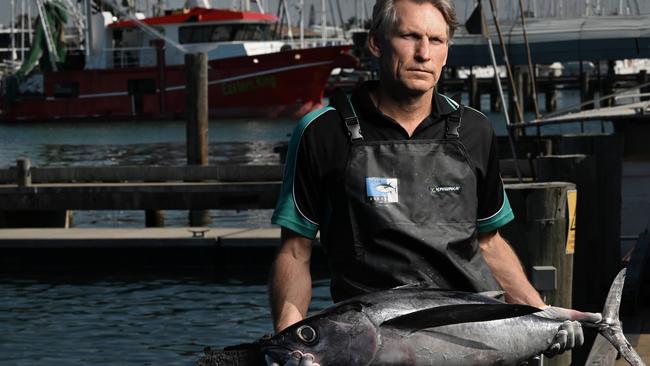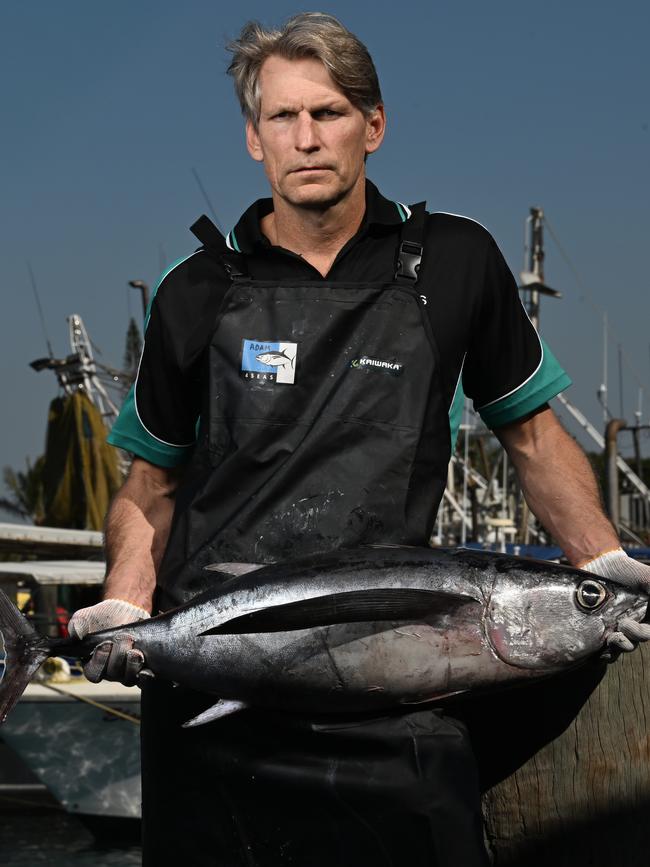Floundering food industry needs more hands on deck to ensure supply chain
Industry peak bodies and businesses across the food supply chain estimate 172,000 jobs need to be filled nationwide to ease product shortages and prevent further price rises.

Industry peak bodies and businesses across the food supply chain estimate 172,000 jobs need to be filled nationwide to ease product shortages and prevent further price rises.
Despite the national unemployment rate of 3.4 per cent and a near record-high labour force participation rate of 66.4 per cent, businesses across the supply chain are struggling to fill key positions.
Restaurants and cafes, farmers, commercial fishers, retailers, truck drivers and food processors are crying out for employees and have called on the federal government to develop a national food supply chain strategy. They say clearing backlogs on visa processing and ongoing training pathways would help easing concerns, but are only part of the solution.
Labour shortages are affecting the viability of businesses from restaurants to farms, with food and vegetables remaining on vines and trees, and farmers struggling to get their products to markets and on to shelves.
The growing problem, which has been exacerbated by the pandemic, has led to the formation of the Food Industry Alliance, which represents peak bodies from across the industry and more than 160,000 businesses with combined revenue of $200bn.
The group is calling for the government’s upcoming jobs and skills summit to put food supply at the forefront of decision-making.
Adam Whan, whose 4 Seas tuna business operates vessels out of Mooloolaba on the Sunshine Coast, said the lack of workers had reduced his fishing capacity.

“We’ve certainly suffered through periods over the past six months where we haven’t had enough labour on the boats, which means we haven’t been able to put all the fishing gear in the water,” he said. “There is a significant shortage of labour to fill these jobs. The reality is, I know a lot of the tuna industry is in even worse condition than us.”
Seafood Industry Australia CEO Veronica Papacosta said the problem was widespread in the sector, including wild-catch, aquaculture and processing.
She said the flexibility in the job market required to fill positions on fishing vessels, which were at the mercy of weather and seasons, had disappeared.
“We know that at least 65 per cent of businesses are affected and they tend to be the smaller artisanal family businesses,” she said.
“There is a lot of pain being felt. There are boats that just can’t go out fishing because they can’t get the crew they need.”
SIA has made submissions to the government to bring in increased foreign labour, but Ms Papacosta said a foreign workforce was “not a silver bullet”. ‘There’s a strong commitment to training and career pathways, but it is ‘what do we do right now?’ “
Independent Food Distributors Australia CEO Richard Forbes said the estimate of 172,000 unfilled jobs was the first time the combined supply chain industries had calculated labour shortages from paddock to plate.
“Staff shortages are at a level where it’s almost unsustainable for the supply chain to continue to work effectively in order to get consumers all the products they want at the prices they want,” he said. “Food and labour shortages have to be a priority of the government in the jobs summit, because people have to eat.
“Given the increasing regularity of natural disasters, what we’ve seen with Covid and the impact of other global factors like the Ukrainian-Russian war, it seems timely for the government to begin the process of developing a national food strategy to ensure that the food supply chain in Australia is not as disrupted by these events as it has been.”
Mr Forbes said shortages of truck drivers and skilled and unskilled labourers in warehouses clogged supply chains and made movement of products difficult.
Australian Meat Industry Council CEO Patrick Hutchinson said meat processing traditionally relied on a mix of domestic and international workers, whose numbers dropped significantly during the pandemic. “It’s becoming insurmountable now,” he said. “We’re seeing 900,000 visas choking the system for renewal.”
He said the industry wanted a visa program for food processing workers with access to education and training and pathways to permanent residency.
Lettuce became a symbol of supply chain issues in the horticulture sector this year after floods wiped out crops and made planting impossible. AUSVEG CEO Michael Coote said the fruit and vegetable sector’s weather woes were exacerbated by a shortage of 10,000 workers.
“One thing government can do would be to adequately resource and expedient some of the visa applications that are waiting to be processed,” he said.
Mr Coote said increased labour from Pacific Island nations would only plug some gaps, and many skilled jobs requiring qualifications would remain unfilled.







To join the conversation, please log in. Don't have an account? Register
Join the conversation, you are commenting as Logout